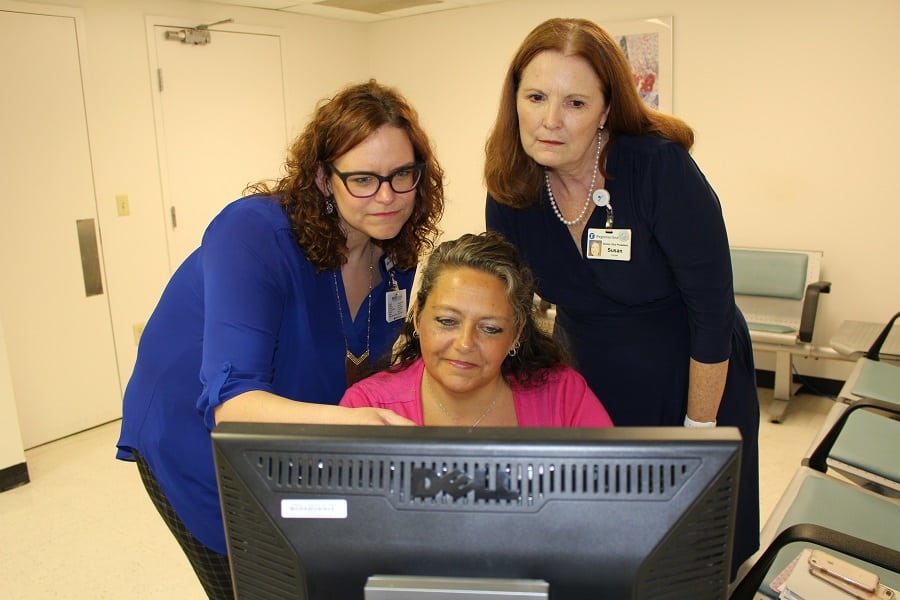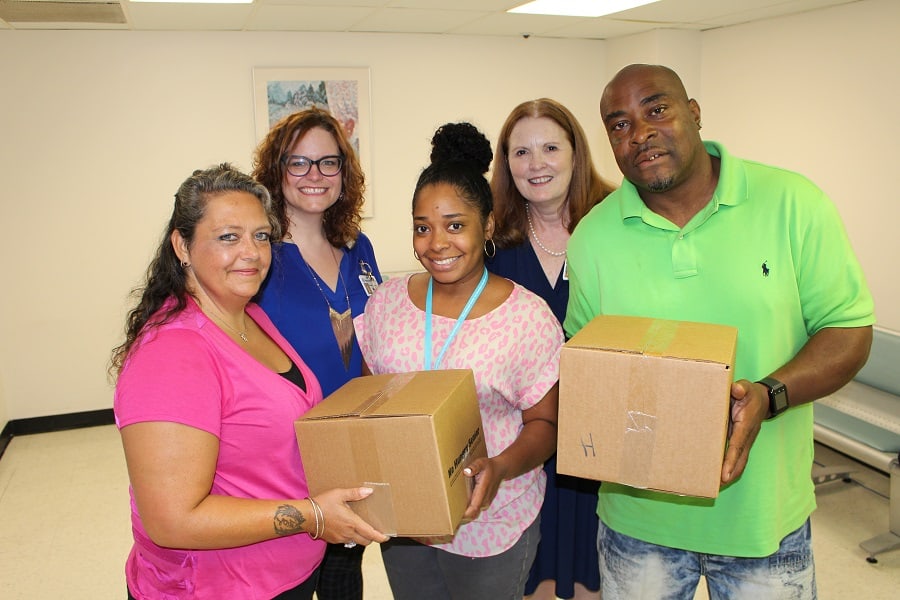With the Regional One Health Foundation’s support, ONE Health is addressing complex needs to lift up our city’s most vulnerable residents.
The program combines the skills of nurses and social workers to help patients address not only medical issues but social issues like homelessness, joblessness and more. Regional One Health’s medical staff and various community partners play a key role in helping patients overcome hurdles.
Patients like The Reverend Alaenor Faye London say the experience has restored their sense of hope and given them a chance to lead productive, fulfilling lives.
By The Reverend Alaenor Faye London
The Reverend Alaenor Faye London is currently a ONE Health patient. She is an advocate for health care and the founder and primary contributor at “The Whole Human: A Movement from the Margins.”
I got a blessing,” said the soft-spoken voice coming from the woman with the big personality. This was her first response to my question, “How did you come into contact with the ONE Health team at Regional One Health?”

ONE Health works by having nurses and social workers develop authentic relationships with patients so they can help them with medical needs and social needs.
When I met Shanyn for the first time, I didn’t know she had celebrated six months sober about 72 hours before our meeting. I also didn’t know she was only eight days away from moving into stable housing after walking away from 25 years of active addiction and, as she put it, “a man who wasn’t very nice to me.”
As Shanyn spoke to me about her shame and how she found herself losing significant relationships with family, friends and even her faith because of feelings of “unworthiness,” I began to understand something about her. She is the blessing of which she thought herself unworthy.
Shanyn told me that after seeking detox and short-term intensive outpatient therapy, she became violently ill and was rushed to the Regional One Health Emergency Department.
After an inpatient stay, Shanyn asked a family member to pick up her medications, but he could not afford them because she has no health insurance. When he asked if there was anyone he could talk to about the cost of the medications, the pharmacy contacted Megan Williams, manager of ONE Health, who promptly fixed the problem.
Williams was able to offer coverage for the cost of the medications because Shanyn qualified for the ONE Health program. Williams then introduced Shanyn to a social worker, Renesa Clemons, who could help her deal with ongoing issues. This moment of intervention, Shanyn tells me, is what she means when she says, “I got a blessing.”
I contend that, while this was indeed a blessing, it was just one of many.

ONE Health gives patients an opportunity to lead healthy, productive lives by addressing health needs like doctor appointments and prescriptions as well as social needs like housing, food and transportation.
As we spoke, Shanyn described a profound loneliness that nearly strangled her as she plodded through each day. Her body language showed shame as she downplayed her sobriety by saying “these six little months,” but brightened up when she began to recall her first session with her ONE Health social worker.
“During our first meeting, Renesa pulled out flashcards with different needs on them and asked me to put them in order of importance to me. That was so smart! I’ve never had that done. And once that was done, she got to work,” Shanyn said. “And you know they really work as a team. Renesa has never once told me ‘no,’ because if she can’t do it, she will get help from one of the other ladies and they will work it out together.”
For nearly an hour, Shanyn and I – both 45, both women of faith, both having struggled with addiction and family trauma, both having felt invisible except for our mistakes, both having nearly died as a result of attempts to self-medicate and both having received truly patient-centered care for the first time when we met as patients of the ONE Health team – cried tears of joy and relief as we realized that by simply surveying how we perceive our needs and helping us fulfill as many of those as possible, ONE Health might literally have saved our lives.
At that moment, sitting together sharing our experience, I realized how her life story blessed me.
The ONE Health team helps patients navigate what can be an exhausting maze of medical and social services necessary to create and maintain healthy lives. Shanyn might have said it best: “They take care of everything…medications, internal medicine appointments, specialist appointments, transportation – I mean everything!”
They do it with a humility that allows them to partner with other community organizations to fully meet the needs of their clients whose life situations and needs are the most complex. The ONE Health team has an in-depth understanding of how health is impacted by external factors and how mitigating or eliminating those factors creates space for a healthier life.

One of ONE Health’s outreach efforts is a food pantry that provides boxes of healthy staples to patients who might otherwise go hungry.
As a person who entered this program over a year ago because of physical health issues and has dealt with my addiction, I can say with full-throated authority that the relationship-building approach is so much more effective than the shaming and blaming approach of most healthcare agencies.
ONE Health is making sure they hear the voices of their patients while attempting to craft the best care possible for people who find themselves in difficult situations.
We are people. We deserve good healthcare like everyone else. For us, good health care may mean digging a little deeper to find the root cause of the drivers of utilization.
I find myself holding on more each day because I know Megan, Renesa and my therapist at Alliance Healthcare Services are pulling for me. This is because of the relationship we have built together.
This relationship-building approach also finds its expression in Shanyn’s life, partially through the nonjudgmental model of complex care. “I’m not ashamed anymore. I even went back to my old church and they were happy to see me!” she said.
My true calling is to reduce stigma around illness and recognize it is harmful to the health of the individual and the community.
As a minister who lives with alcoholism and several other severe mental and physical health diagnoses, I am grateful every day for these professionals who make their work just personal enough to be useful. My favorite example of this is the joy – the genuine joy – they express when one of their patients gets housed, finds a job, finishes their GED or celebrates a sobriety birthday.
As Shanyn and I cried together, we both agreed this treatment model deserves more attention.

